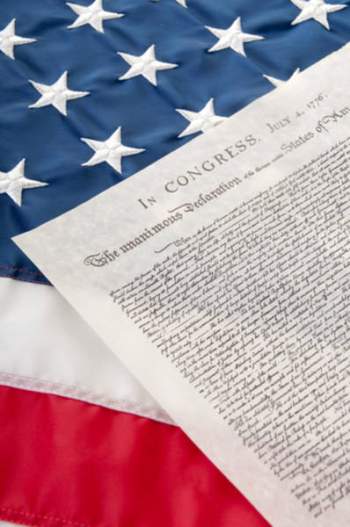
13th Amendment

Today we all celebrate Abraham Lincoln as the man that issued the Emancipation Proclamation and ended slavery in the United States. But did the Emancipation Proclamation actually end slavery for good? The answer is no. Lincoln, concerned that others might see his proclamation as a temporary order meant to hurt the rebel states push for the 13th amendment, which outlawed slavery everywhere in the United States. Remember, that the emancipation proclamation only declared that slaves in the rebel states were free. The 13th amendment made slavery and involuntary servitude illegal everywhere in the United States.
What is free will?
Free will is the right to do whatever you want without consequences. Our free will is limited by the law, which makes certain behaviors crimes and society, which disapproves of certain behaviors. You may have the free will to have a messy room, but your parents can limit your free will and tell you to clean up that mess.
What forms of slavery are illegal thanks to the 13th amendment?
One cannot be forced to work to pay off a debt. This is called peonage. One cannot be threatened to work of a debt either. If there is a debt between two people, the person the owes the other person has to volunteer or agree to work off the debt.
Let’s break down the important text of the 13th amendment!
Section 1
Neither slavery nor involuntary servitude,
(involuntary servitude is being forced to work against your free will, even if you are paid)
except as a punishment for crime…
(if you commit a crime, the United States can make you work as punishment for what you did)
… whereof the party shall have been duly convicted,
(you have to be guilty of the crime before you can be forced to work against your free will)
shall exist within the United States, or any place subject to their jurisdiction.
(slavery cannot exist in any state in the United States or any territories or land that the US might have)
Section 2
Congress shall have power...
(this section gives Congress a responsibility against slavery…)
…to enforce this article by appropriate legislation
(…to pass laws against slavery and punish those that force people to work against their free will)
The 13th amendment was needed to put an end to slavery once and for all. Before the 13th amendment, there were many laws that protected slavery, so passing this 13th amendment instantly threw all of these old laws out. Twenty-seven out of thirty-six states ratified the amendment and the 13th amendment was adopted into the constitution on December 6, 1865.
After the 13th amendment, no one could force anyone, with physical force, fraud or threatening legal action to work against their will. This did not stop people from scaring people into working for them, although this was outlawed in 2000. If anyone forces anyone else to work against their free will, then the United States government will prosecute them for violations of the 14th amendment.
















